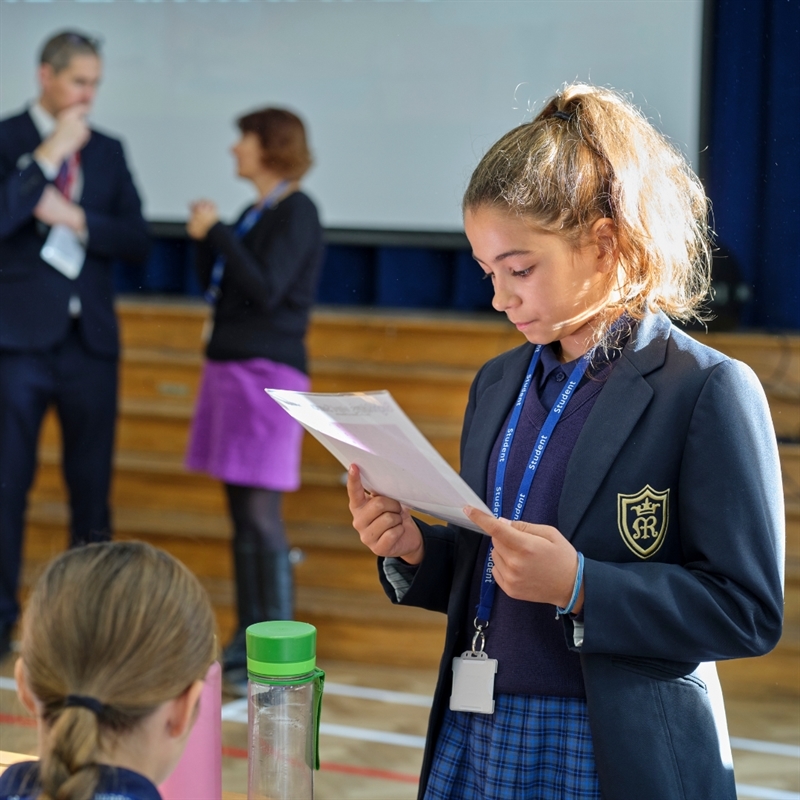Women using their voices to make powerful change

Women in history have been discouraged from using their voices and speaking in public, however, that has not stopped some women who have always spoken out.
The power of using your voice may seem to many as standing on a platform and making a speech, but there are countless other ways that women have used their voices to make change and challenge the status quo.
Sometimes being silent can be the most powerful voice in the room.
For this year's World Voice Day, we decided to look at and celebrate some of history's underappreciated women who have used their voices to create great change.
World Voice Day encourages us to review our history and look at some of the figures who had a powerful influence in using their voice in both conventional and unconventional settings.
We celebrate one of our distinguished alumnae, Baroness (Lucy) Neville-Rolfe, on World Voice Day. Lucy is currently serving as Minister of State in the Cabinet Office. While in the sixth form at St Mary's Lucy found her voice as president of the Debating Club, in due course moving on to Oxford University. From there she moved into the civil service fast stream, which included time in the Policy Unit at 10, Downing St and as head of the Deregulation Unit in the Cabinet Office. From there she moved into the private sector at Tesco spending 7 years on the main Board. She was appointed to the House of Lords in 2013 and has had two stints as a minister in several departments including the Treasury. Along the way, she has collected a CMG (for her contributions to the Foreign Office Board) and a DBE (for contributions to industry and the voluntary sector) as well as raising four sons.
Sian Morley-Smith, another alumna, is the founder of ToucanTech. ToucanTech is a flexible community database software for schools, charities, institutes and companies. We are proud to see a former student becoming a successful businesswoman and founding her own very successful company. Her passion for her work is shared by her many clients who benefit from her strong lead in the art of communications. Sian's innovative contributions exemplify the transformative impact of leveraging one's voice to effect meaningful change and foster vibrant communities.
One example of a well-known figure from the history books is Cleopatra VII. Cleopatra VII Philopater was the last active ruler of the Ptolemaic Kingdom of Egypt, ruling from 51 BC to 30 BC. She is perhaps one of the most famous figures of antiquity, renowned for her intelligence, beauty, and political acumen.
Her legacy lives on many years later as we reflect on how she used her voice to become a woman of power and great change at a time when women were not valued as equals. Cleopatra VII spoke between six and nine different languages. Being able to speak in many different languages meant that she was extremely skilled at communicating with neighbouring tribes and countries who did not speak Egyptian. This allowed her to become very skilful about talking her way into and out of situations for her country. The knowledge she held and vocalised is one of the reasons she was so successful for so long, even though it was not celebrated at the time.
A modern-day example whose work has directly had an impact on Cambridge is Mary Beard. She is a distinguished classicist and Cambridge University professor is renowned for her scholarly contributions and public engagement. Through her insightful writings and captivating lectures, Beard has brought ancient history to life for audiences around the world. Using the power of her voice she has advocated for gender equality, which has made her a leading voice in academia. Her voice has not only been heard by many but also educated and inspired countless young women. Teaching at Cambridge University highlights to our students how women right on our doorstep are using their voices.
As a girls' school and advocate for young female voices, we actively encourage all our young girls to speak up using their power to voice opinions and create positive change.